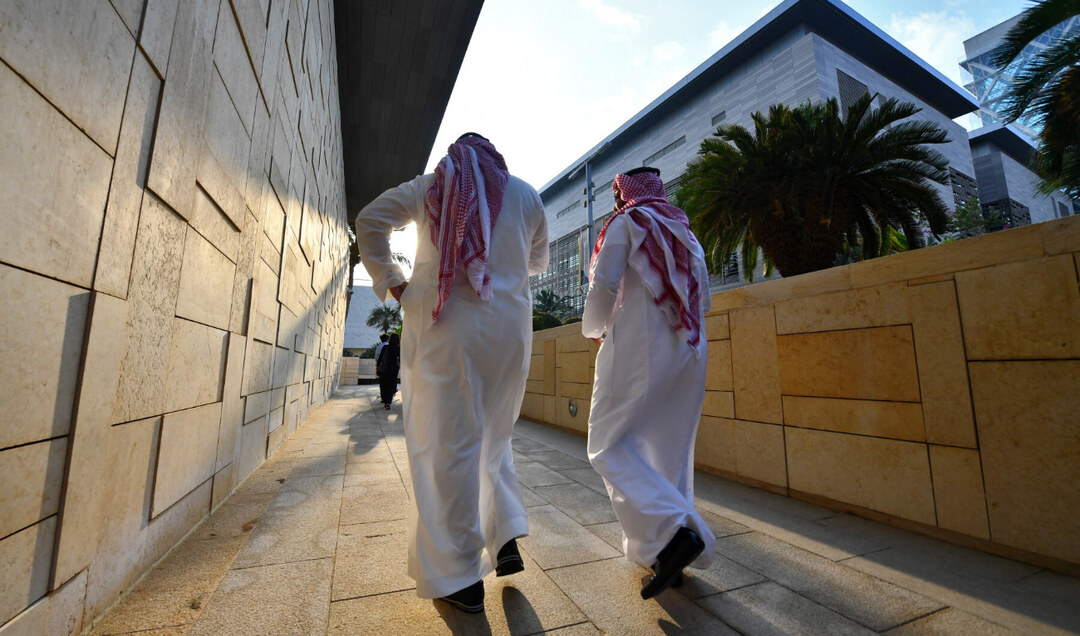A study by researchers from Princess Nourah bint Abdulrahman University revealed that tribal boasting and fanaticism are considered obstacles to social development, with mostly negative effects.
These behaviors stem from a desire for prestige — to show the superiority of one tribe over another.
Examples of this, in my opinion, are the camel beauty pageants (Mazayen Al-Ibl) that each tribe used to hold individually in the past, which often resulted in feuds between them.
This prompted the state to organize the Mazayen festival under its auspices about 15 years ago.
It was initially known as the Um Ruqaybah Festival in 2010 before its cancellation in 2015, and then its re-establishment in 2017 as the King Abdulaziz Camel Festival, under the state’s umbrella and with a unifying national identity.
This rebranding replaced tribal biases with a shared national pride, aligning with the demands of modern society and the goals of Vision 2030.
On the other hand, about 20 years ago, members of tribes in Saudi Arabia, due to actions taken by some people in government institutions, faced academic, professional, and geographical discrimination.
Not only was the medical college at Saudi universities reluctant to accept them before the era of electronic admissions, but these discriminatory practices were not fully eradicated until the reign of King Salman and Crown Prince Mohammed bin Salman.
The criteria for selection nowadays are competence and merit, not ethnic affiliation, urban or rural background, or social status. Nevertheless, some bias remains which is used to justify certain actions.
Tribalism is not a new phenomenon. It existed before Islam and caused wars that lasted for hundreds of years, most notably the War of Dahis and Al-Ghabra, the War of Al-Basus, the Sacrilegious War (Harb Al-Fijar), and the Battle of Bu’ath.
While the role of tribes has changed in recent years, these social groups remain linked to their members.
This is not unique to Saudi Arabia — tribal culture is present and influential throughout the Arab world, both in the East and the West.
It plays a significant role in parliamentary elections in Kuwait and Jordan. In present-day Libya, tribes control some oil wells and wield geographical influence and territorial boundaries.
In post-Saddam Iraq, tribes have become a critical factor in the political landscape.
Meanwhile, in Lebanon, tribalism manifests through family and religious sects, both of which influence political life and appointments.
In Yemen, stability and governance often hinge on tribal alliances, their approval, or their tacit consent.
On the other hand, tribes in Saudi Arabia have no effective power beyond their symbolic roles or their functions as social incubators.
This is because the Saudi ruling house is not linked to traditional tribal structures, and its urban roots date back two centuries before the advent of Islam.
This means that it maintains equal distance from all components of Saudi society.
Furthermore, Saudi Arabia is a state of institutions that reshapes and influences tribal tendencies, framing them and reinforcing individual ownership and personal responsibility for actions, independent of tribal affiliation.
This is inherent in the genetic makeup of the civil state, which is based on a unifying national narrative, similar to what occurs in Canada, the US, Australia, and Latin America.
These are all immigrant societies that share a single narrative in their relationship with the state.
From a legislative standpoint, tribalism is regulated by a set of laws, most notably Article 12 of the Basic Law of Governance, Articles 15 and 17 of the Code of Criminal Procedure, Articles 5 and 17 of the Audiovisual Media Law, and Article 6 of the Anti-Cyber Crime Law.
Penalties range from administrative to criminal, varying between one and five years of imprisonment and fines ranging from a minimum of SR500,000 (about $134,000) to a maximum of SR10 million.
These penalties may also include suspension from practicing a profession for up to six months and license revocation, both of which relate to media outlets. Therefore, there is no deficiency in the legislative aspect.
However, despite the foregoing, individual actions still resurface the old tribal dynamics in the Kingdom, with a number of incidents reported in 2024.
These are particularly observed among guests on talk shows focusing on the Mazayen festival, in the raising of tribal flags at national events such as National Day and Founding Day, in some sheilat songs, television series, and qalta poetry, and in marketing new cafe openings under tribal names.
Although limited, the fact that they happen at all suggests the need for a national plan to tackle the issue through social, educational, and media programs.
Saudi sociologists including Dr. Abdullah bin Mohammed Al-Fawzan, secretary-general of the King Abdulaziz Center for National Dialogue, emphasize the necessity of transforming tribes into civil society organizations.
These, they argue, encompass a set of values that can be built upon, especially in strengthening national unity and in the case of blood feuds.
Moreover, tribes themselves play an important and decisive role in refining the behavior of their members.
- Dr. Bader bin Saud is a columnist for Al-Riyadh newspaper, a media and knowledge management researcher, an expert and university professor in crowd management and strategic planning, and the former deputy commander of the Special Forces for Hajj and Umrah in Saudi Arabia. X: @BaderbinSaud













